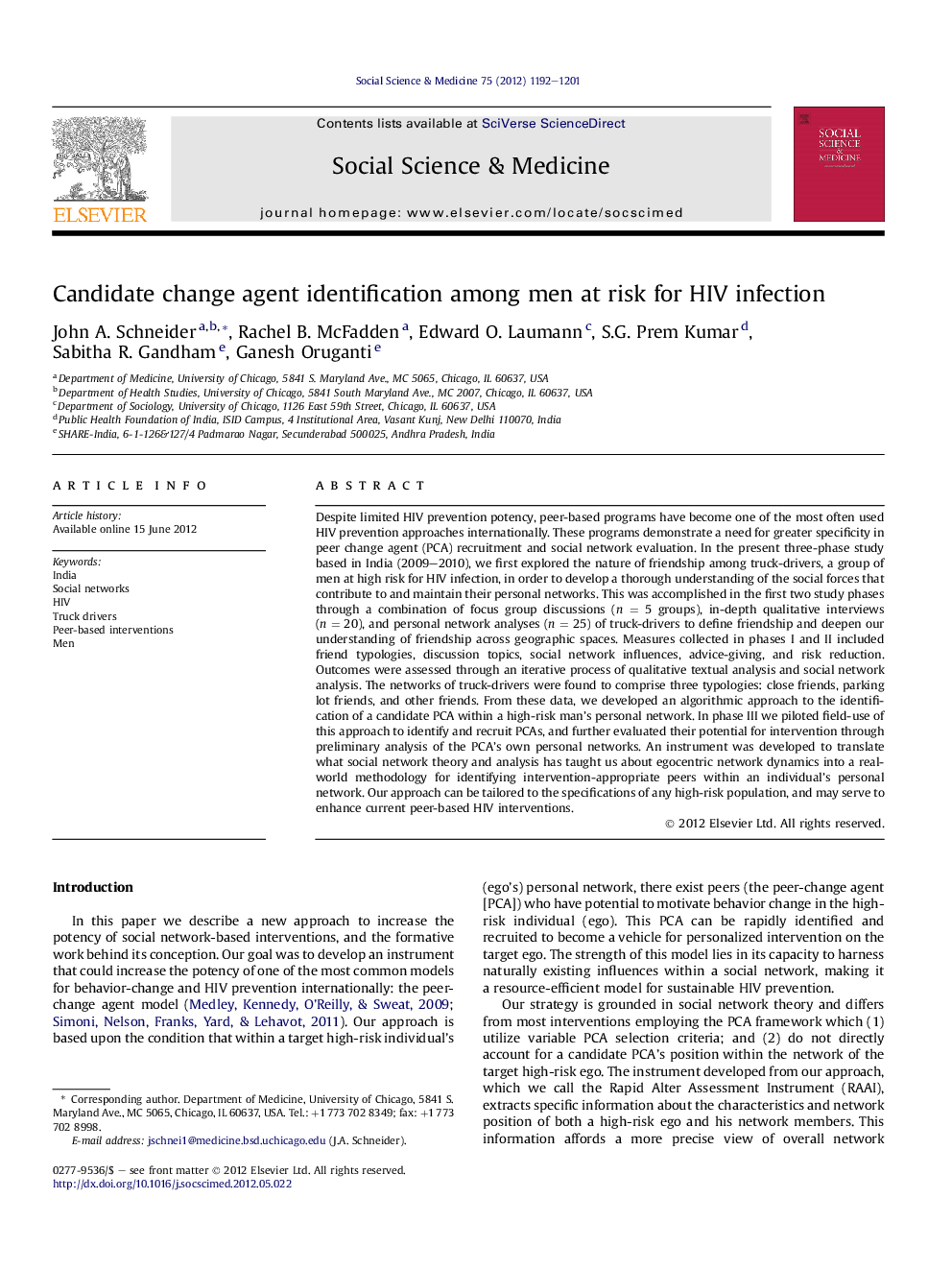| کد مقاله | کد نشریه | سال انتشار | مقاله انگلیسی | نسخه تمام متن |
|---|---|---|---|---|
| 952462 | 927516 | 2012 | 10 صفحه PDF | دانلود رایگان |

Despite limited HIV prevention potency, peer-based programs have become one of the most often used HIV prevention approaches internationally. These programs demonstrate a need for greater specificity in peer change agent (PCA) recruitment and social network evaluation. In the present three-phase study based in India (2009–2010), we first explored the nature of friendship among truck-drivers, a group of men at high risk for HIV infection, in order to develop a thorough understanding of the social forces that contribute to and maintain their personal networks. This was accomplished in the first two study phases through a combination of focus group discussions (n = 5 groups), in-depth qualitative interviews (n = 20), and personal network analyses (n = 25) of truck-drivers to define friendship and deepen our understanding of friendship across geographic spaces. Measures collected in phases I and II included friend typologies, discussion topics, social network influences, advice-giving, and risk reduction. Outcomes were assessed through an iterative process of qualitative textual analysis and social network analysis. The networks of truck-drivers were found to comprise three typologies: close friends, parking lot friends, and other friends. From these data, we developed an algorithmic approach to the identification of a candidate PCA within a high-risk man's personal network. In phase III we piloted field-use of this approach to identify and recruit PCAs, and further evaluated their potential for intervention through preliminary analysis of the PCA's own personal networks. An instrument was developed to translate what social network theory and analysis has taught us about egocentric network dynamics into a real-world methodology for identifying intervention-appropriate peers within an individual's personal network. Our approach can be tailored to the specifications of any high-risk population, and may serve to enhance current peer-based HIV interventions.
► Reviews the usefulness of peer-based and network-based approaches for HIV prevention.
► Analyzes the friendship networks of Indian truck-drivers to identify candidate peer change agents.
► Unique friend typologies were socially and geographically bounded; “bridging” alters were identified as ideal change agents.
► A novel instrument was used to identify alters who may affect drivers' behavior according to social network theory.
Journal: Social Science & Medicine - Volume 75, Issue 7, October 2012, Pages 1192–1201